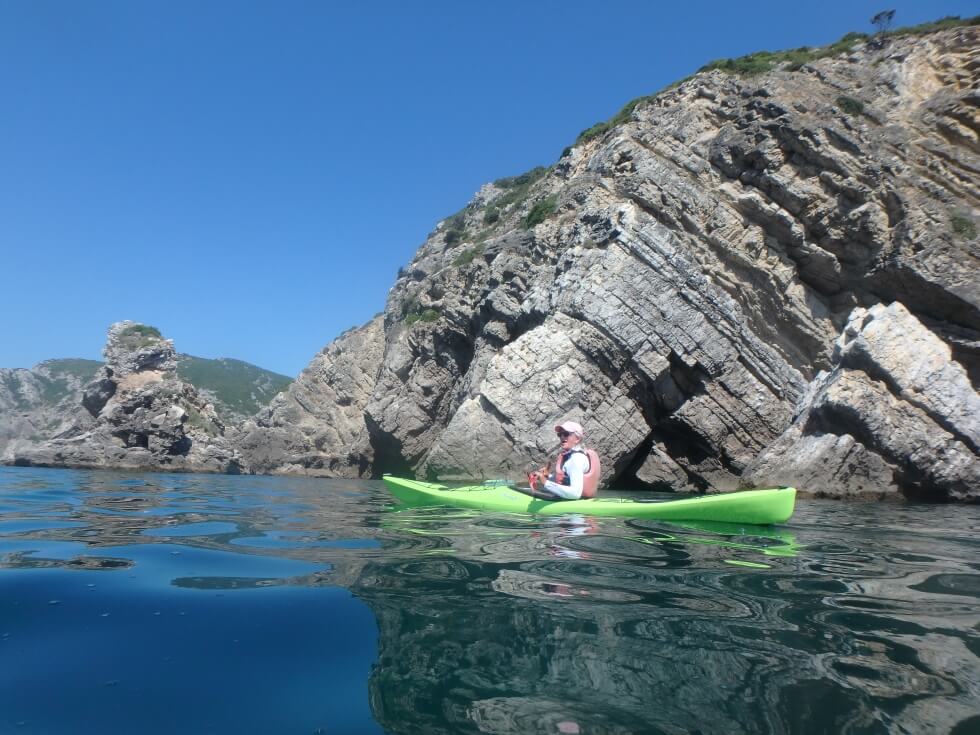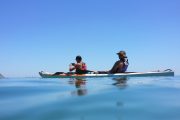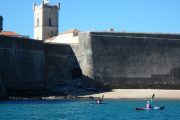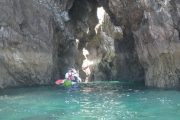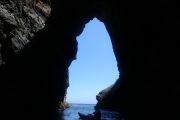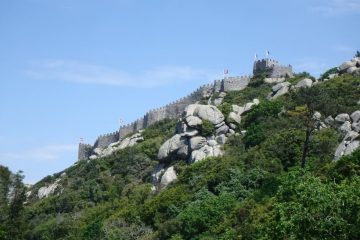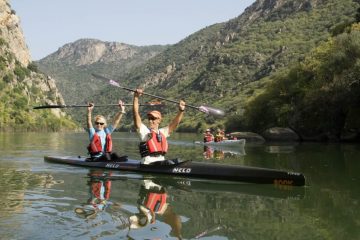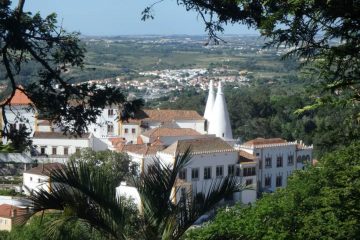Discover Lisbon region on top of your Kayak!
Paddle 5 days long on Lisbon coast during this kayaking trip around Lisbon. The capital city is a treasure surrounded by the Tagus River (“Tejo”) and the Atlantic Ocean. Kayaking is the best way to appreciate the beauty of the coastline.
The expedition starts in Cascais on the Atlantic Ocean where you will paddle along one of the most beautiful urban coast in Europe until you reach the Tagus River. You will be amazed by the Castles, Palaces, Villas, Fortresses and by one of the prettiest Portuguese coastline. After reaching the historic edge of the Maritime Discoveries in Belém, we follow towards Sesimbra and explore its Natural Park and unique and wild coastline until we reach Troia Peninsula.
Kayaking trip around Lisbon is a 5 days coastal kayaking expedition where you will experience a mix of water, Atlantic ocean, estuary of the Tagus river, diverse coastlines and landscapes. You will mostly paddle protected by the coast and might experience some windy or wavy sections. Our ACA certified and experienced guides will take the best care of you during this paddle adventure that is limited to groups of 12 participants.
| INCLUDED | ACA certified guide Sea kayak (individual or double), spraydeck, PFD, paddle (sea kayak or wing) Transfers Insurance Full-board Accommodation, 5 nights |
From the Atlantic Ocean to the Mouth of the Tagus River, 15km
Towards Lisbon, 12 km
Sesimbra - Espichel, 24 km
Sesimbra - Portinho, 14 Km
Towards Setúbal, 8 Km
We will go back to Lisbon that you will be able to discover from the inside too, after a wonderful closing dinner.
See you soon
Arrábida Nature Park
Arrábida Nature Park and Maritime Park Professor Luis Saldanha are one of the most beautiful and fascinating natural regions of Mediterranean influence, and remains almost untouched in its natural equilibrium. For many years the area now occupied by the Arrabida Natural Park was an important hunting reserve with a diversified fauna, which, amongst other species, included wolves, wild boar and deer, the latter having disappeared by the beginning of the 20th century. The most representative and characteristic biotopes for the land fauna are limestone cliffs and rocky outcrops, caves, scrubland, thickets, bushes, copses, corkwoods, pine forest, meadows and small watercourses. Arrabida’s marine ecosystems are of the greatest national and international importance too. The cultural references of the Park witness occupation from prehistoric times, through those of the Phoenicians and Romans to the Arabs. We will visit the medieval castles of Sesimbra and Palmela and the sixteenth century Fortress of S. Felipe and spend the night in the Convent of Arrábida.

